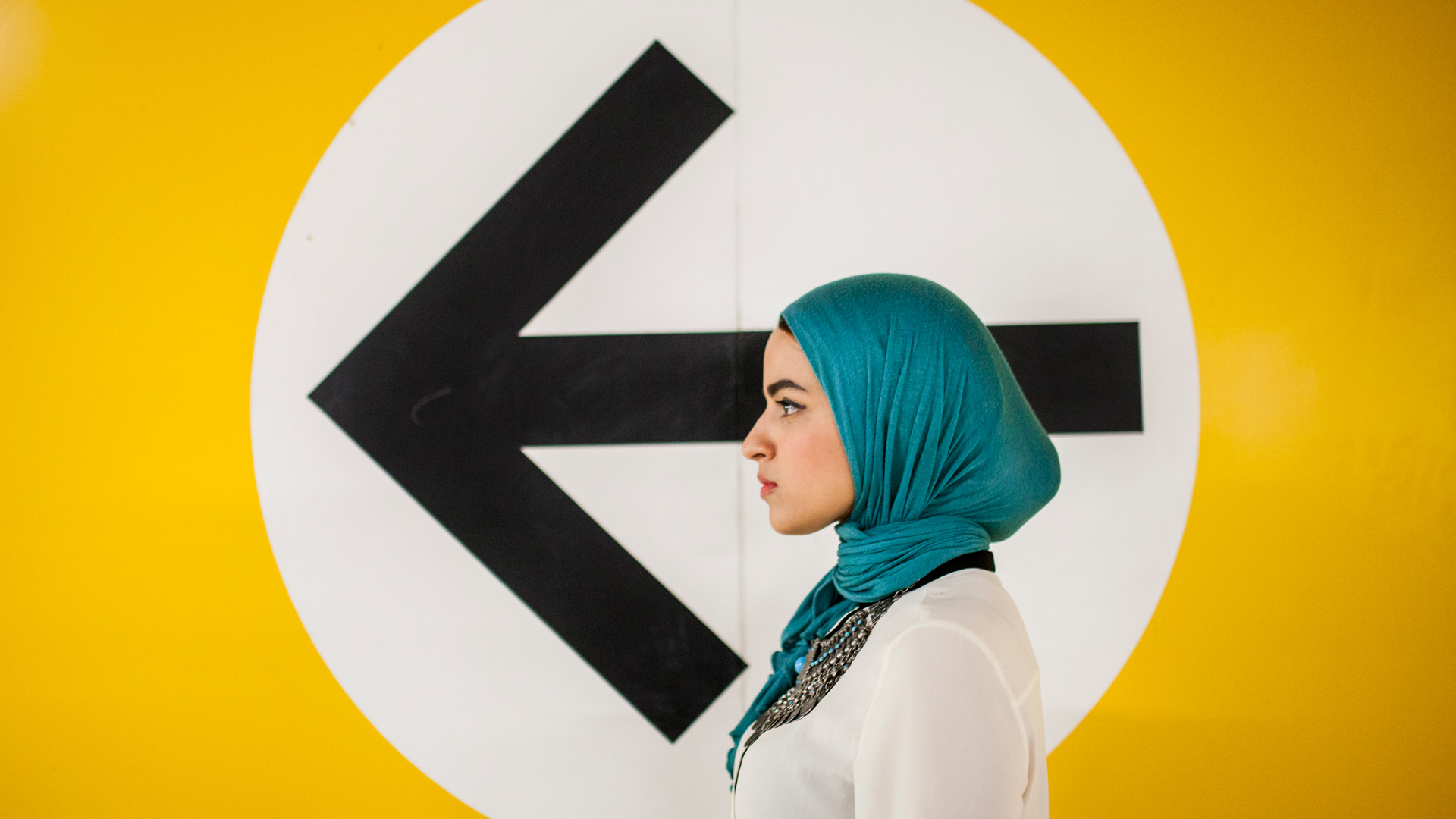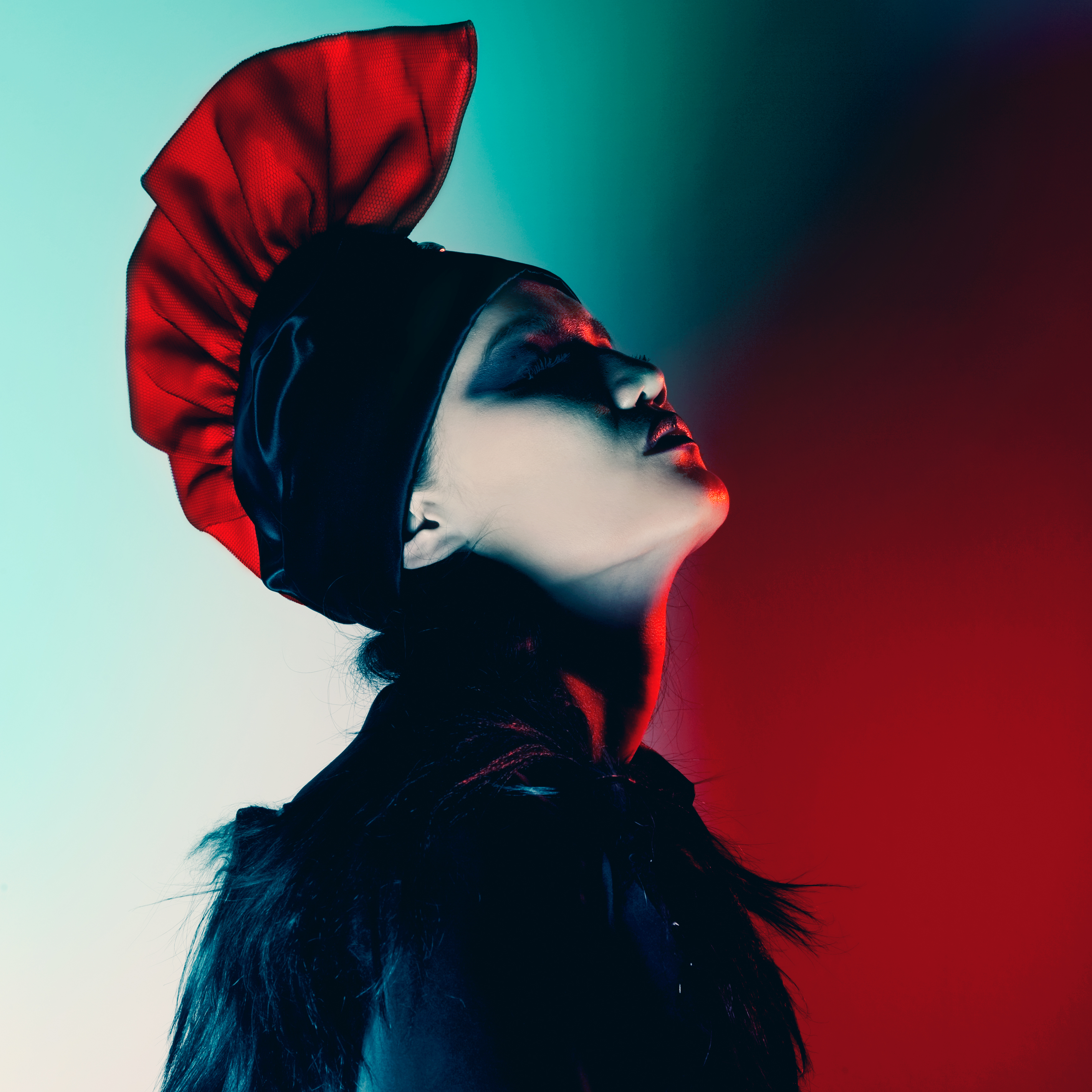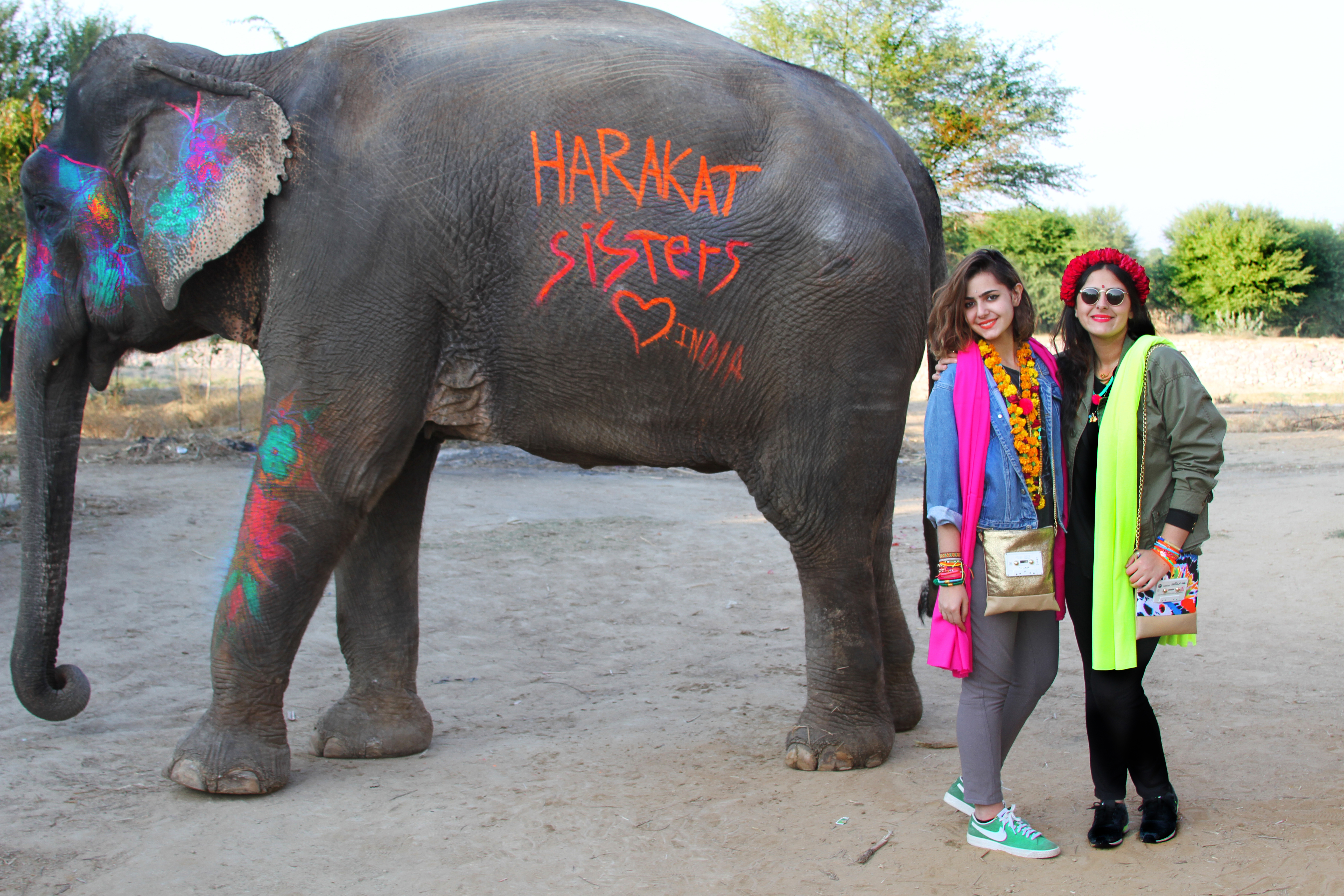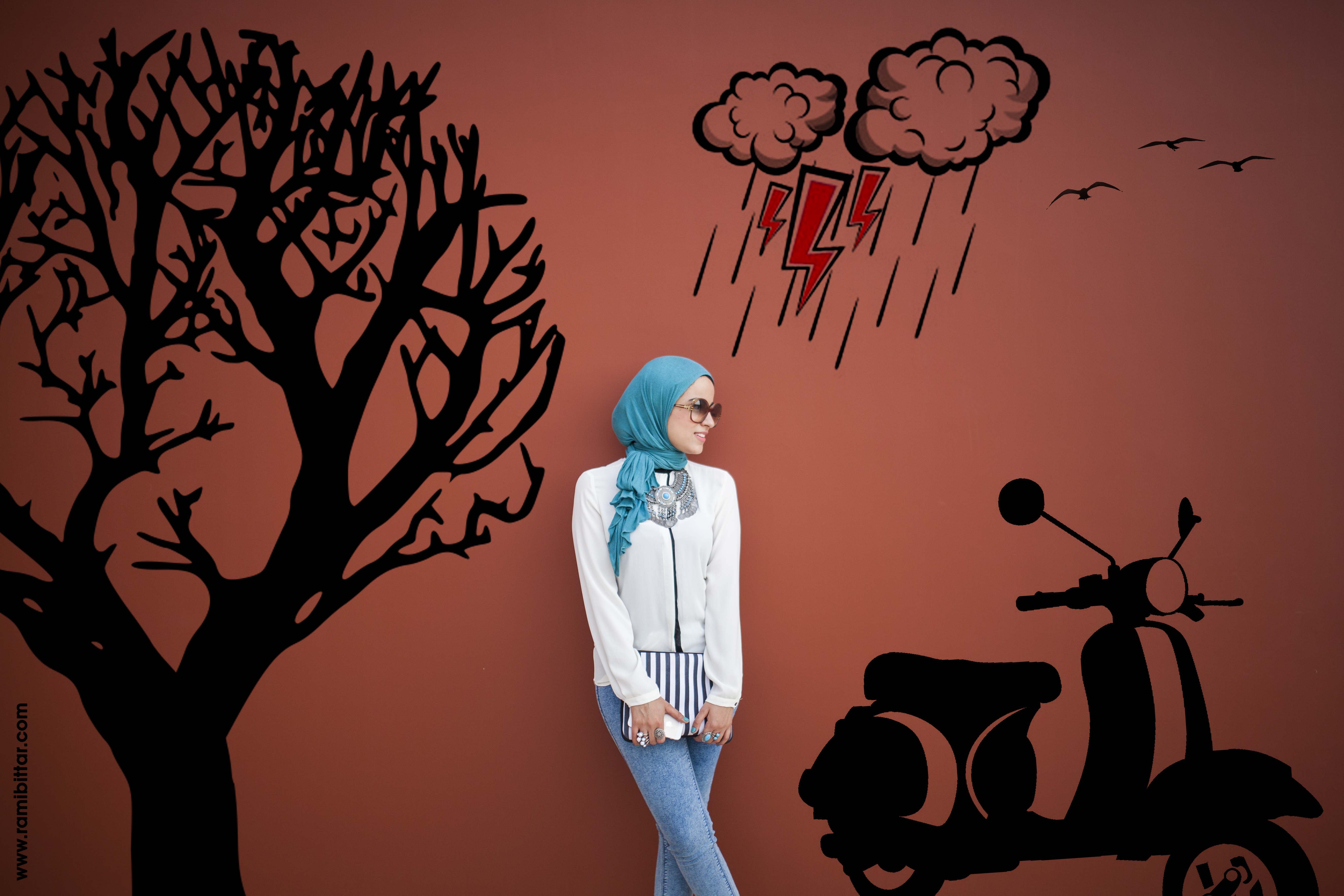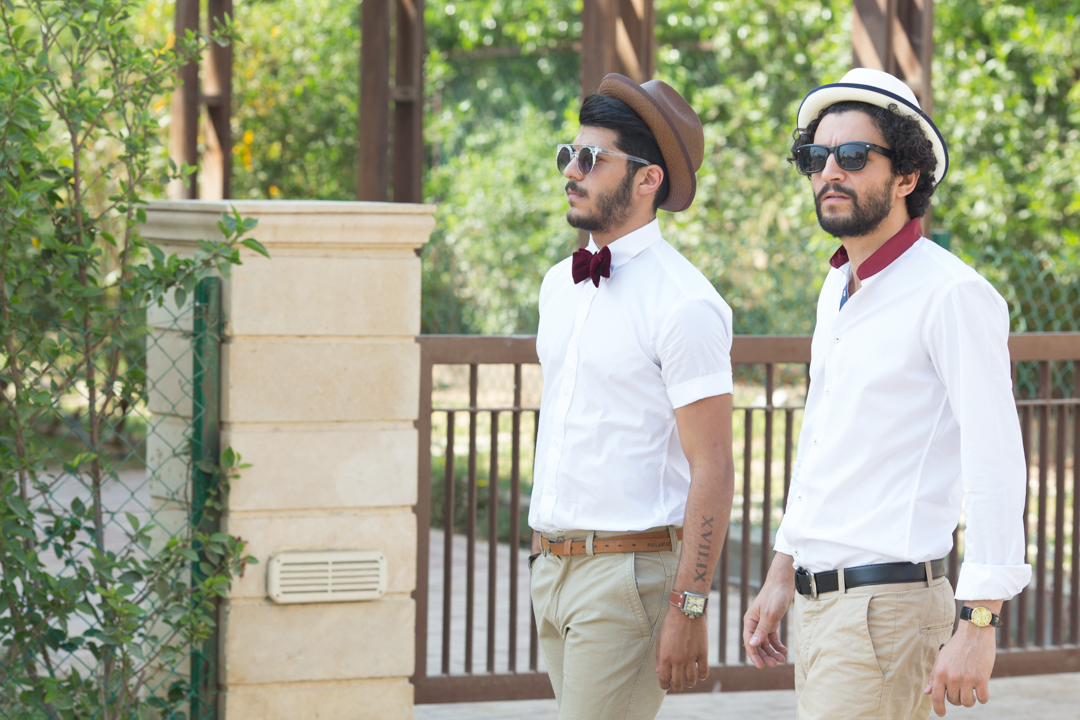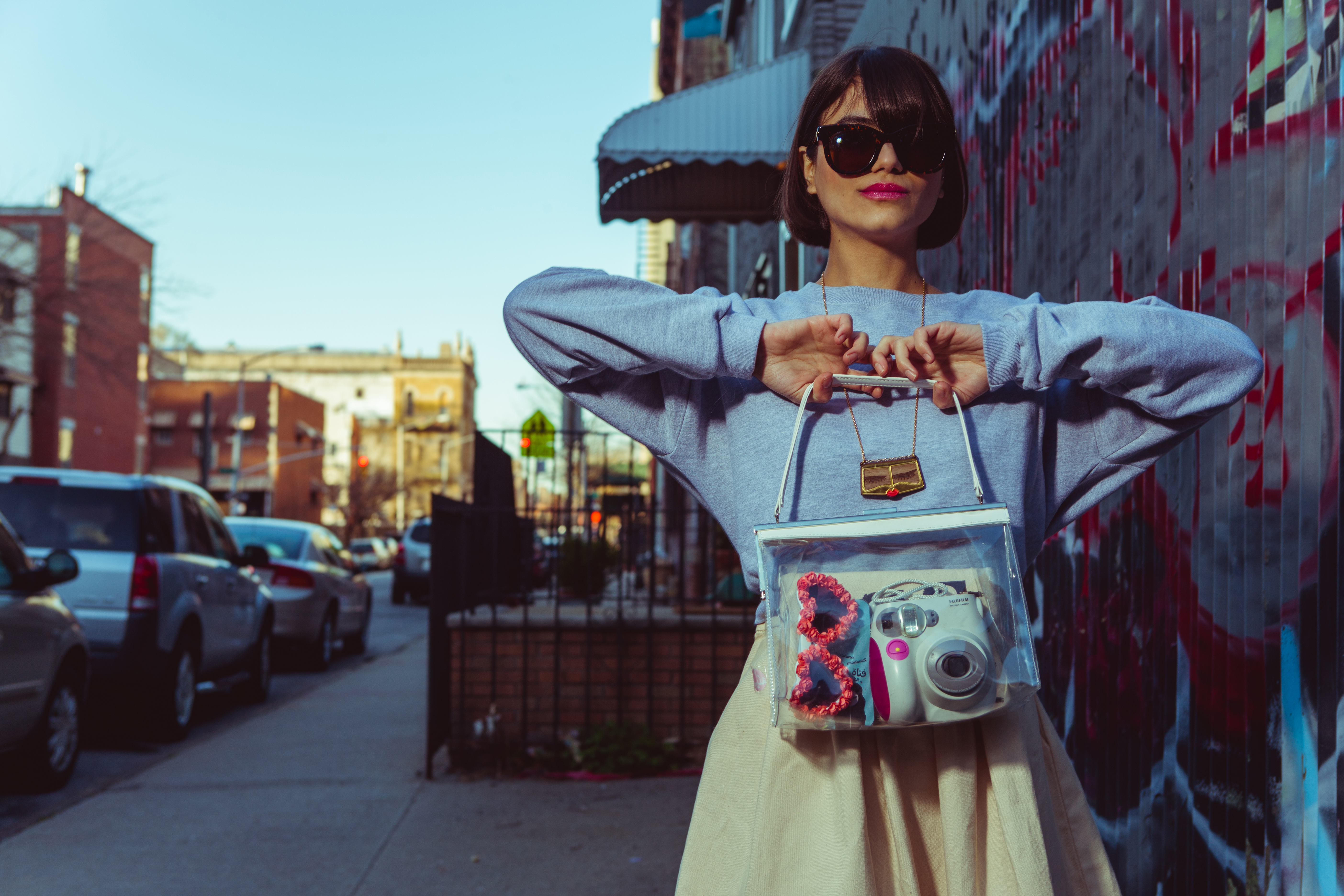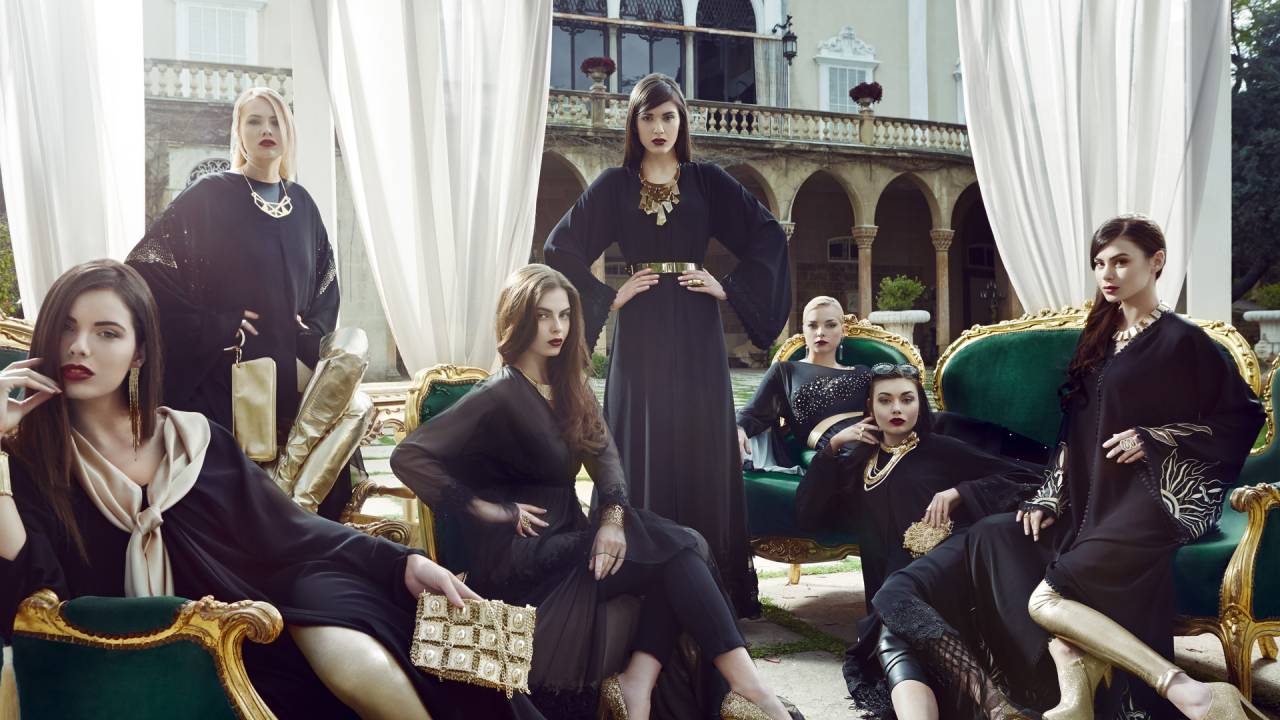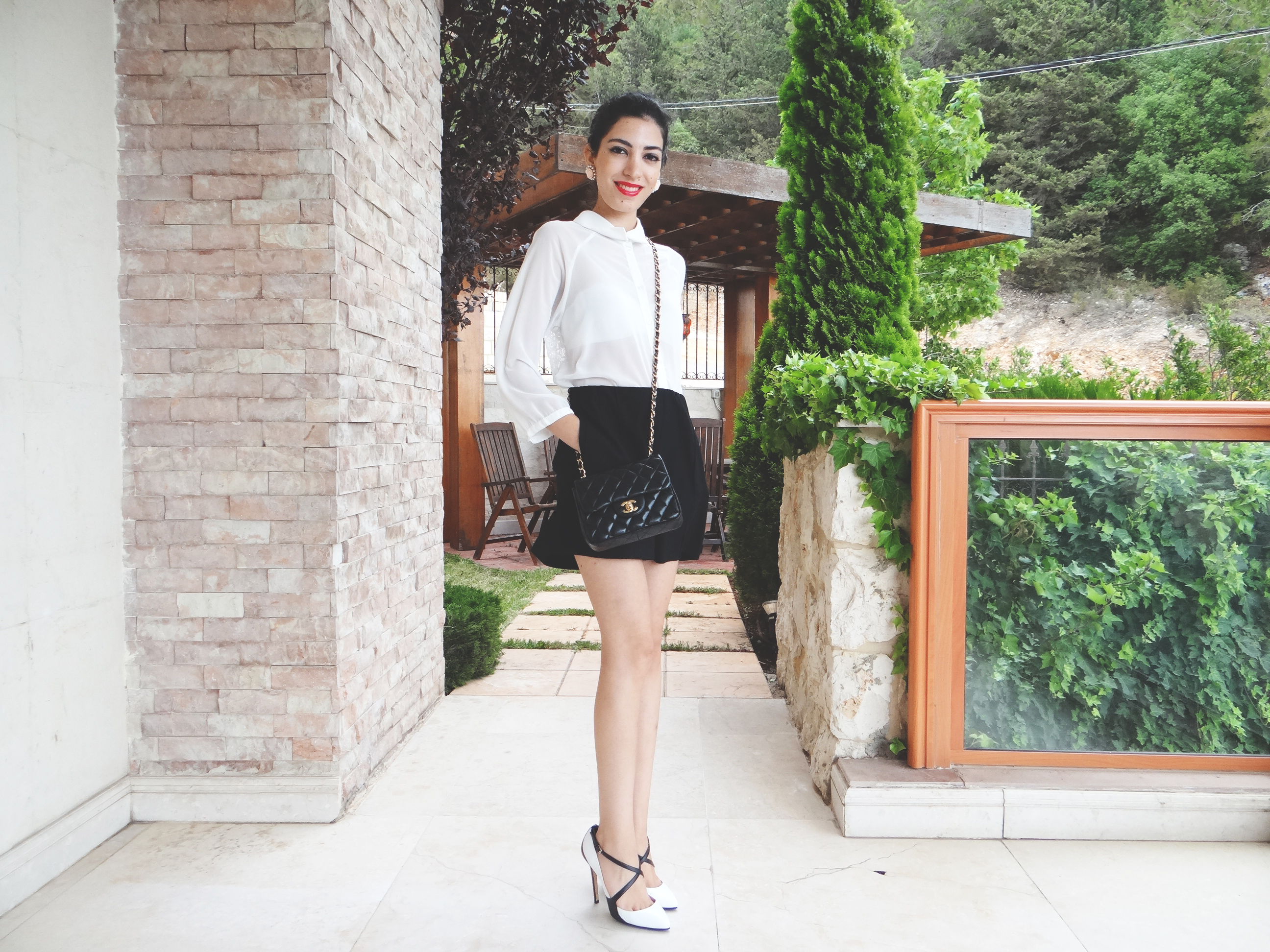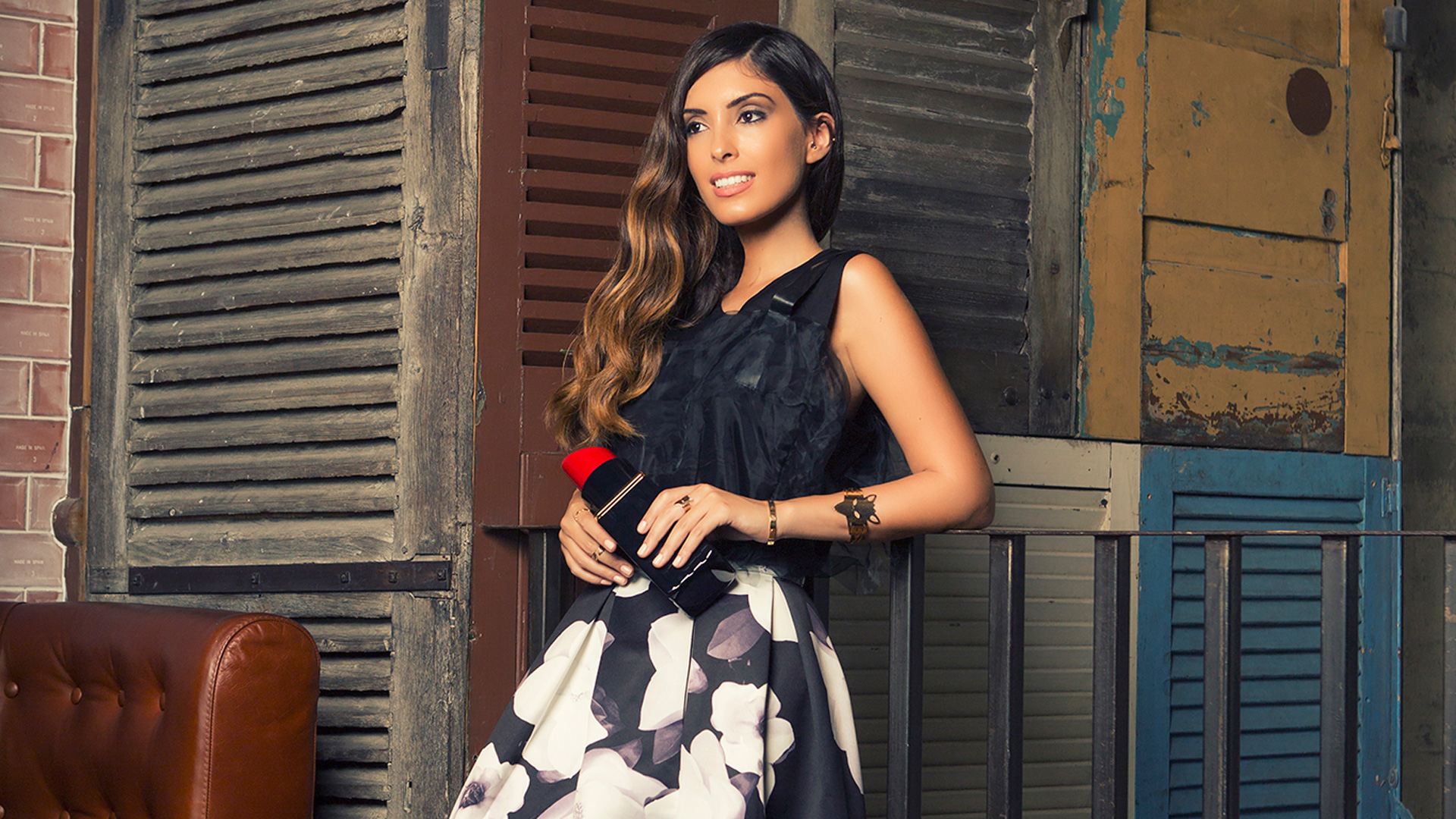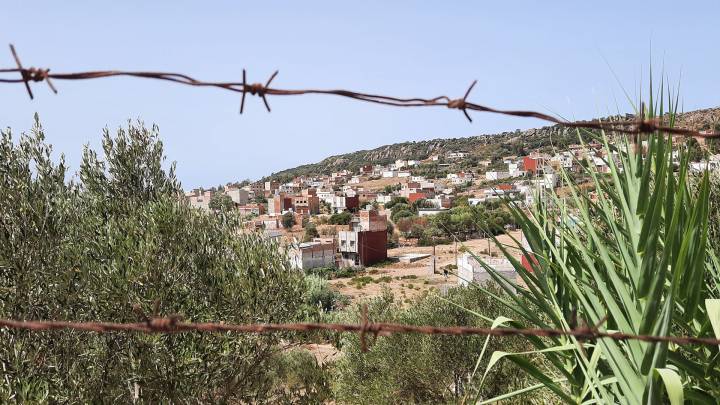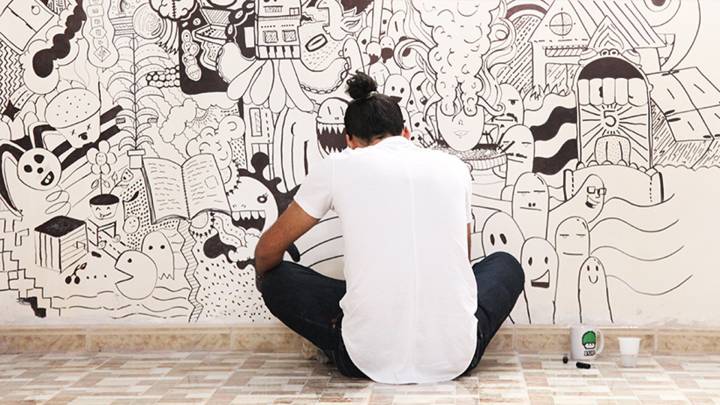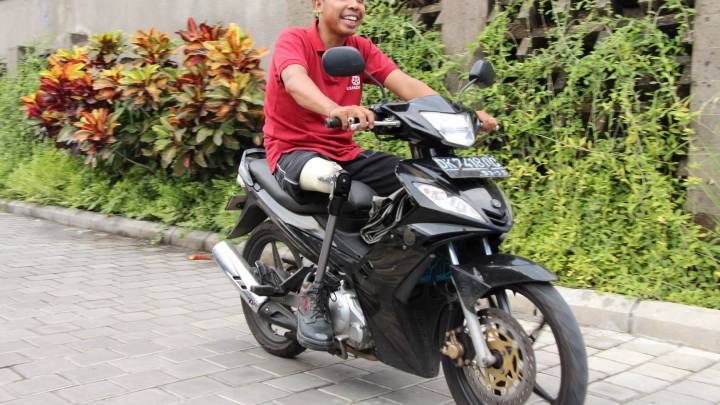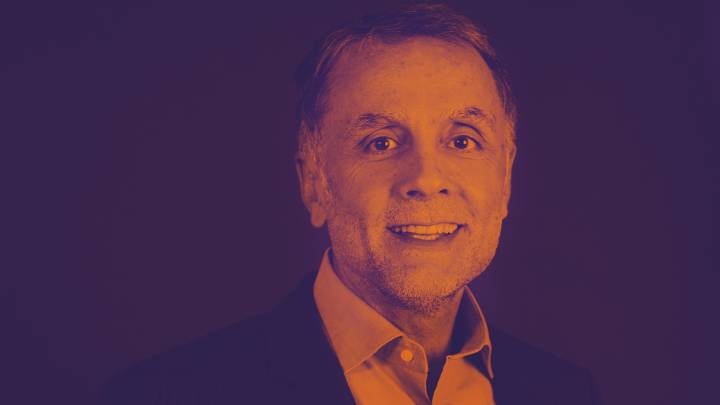A vibrant fashion scene is flourishing between Casablanca, Cairo and Riyadh. But it isn’t glossy magazines that are setting the trends and leading the way - it’s a new wave of young designers and fashion bloggers.
Bint Thani: Charmingly Swathed
If Khulood Thani was to move to another city, it would be Berlin. The designer admires the city for the emerging fashion scene taking shape there and the way designers are developing their own styles. Thani wants to do the same thing for her home city. A quick look at her CV testifies to her ambition: the first woman from the UAE to attend renowned Parisian fashion school ESMOD, she graduated with a Masters in Fashion Management and then studied in England, Australia and the UAE. In 2011 she founded her own label, Bint Thani, whose style she describes as modern, edgy and simple. The following year, her offbeat turban collection garnered attention. Some swirl the shining silk elegantly around the head, while others are reminiscent of a mohawk or Mickey Mouse. She found inspiration in the Paris of the 1920s; Thani likes to roam through history, and finds inspiration in museums or exhibitions. The reason? “Fashion is communication. A piece of clothing should have a message, express a lifestyle or be reminiscent of a bygone era.”
Harakat Sisters: Colourful is Key!
Lebanese-Moroccan sisters Sara and Nisrine are actually still studying in Paris. But since 2011, they have much preferred to follow their hobby, designing and manufacturing their own accessories. Over time, this has developed into Harakat Sisters, a successful startup. The sisters sell their designs in several concept stores in Morocco as well as pop-up shops in Paris.
“Our style could be described as oriental pop-ethno,” says Nisrine. “For material, we use colourful glass beads, wool, old cassettes and anything else we find on our trips through Asia and Africa.” Their playful accessories, primarily brightly-coloured chains and glittering handbags, are hand-made by Nisrine and Sara in their studio in their parents’ house in Casablanca.
Their role models range from Iranian artist Shirin Neshat to Pedro Almodóvar to Kurdish-Iranian director Bahman Ghobadi, and they believe fashion is coming of age in the Middle East. “Arabic designers are finally starting to understand the value of their exciting, profound culture.” They also see themselves as artists whose task is to break with tradition: “We follow our inspiration, without letting ourselves be restricted by social conventions.”
Sahar Mohamed Foad
Sahar Mohamed Foad has amassed an Instagram following of more than 250,000, blogging from Cairo. The construction engineer posts on Instagram her street styles. She doesn't conform to fashion rules, loves colourful pattern mixtures, and tries to express her opinion through her style.
Islam Ahmed
Islam Ahmed from Cairo studied at fashion school and then founded fashion platform Vichi, where he blogs with others about the Cairo fashion scene and small independent labels. With the growing success of his blog, he is now able to support his initially sceptical family.
Fyunka: Daddy, Buy Me an It-Bag!
“Everything looks better with ribbon bows,” Alaa Balkhy finds. That's why she called her fashion label Fyunka, Arabic for ‘ribbon bow’. In 2011, the trained graphic designer founded the company, which stands out thanks to her bold designs, funny slogans and veiled comic book figures, often with large sunglasses or red puckered lips, emblazoned on colourful handbags. “Stylistically confident, with a touch of surprise” is how the 25-year-old describes her designs.
It's not only her designs which are bold. She isn't afraid to take on controversial subjects. With one drawing, seized on by many media outlets, her brand made the Jeddah-born Balkhy suddenly famous. The illustration shows the coveted Birkin Bag from luxury brand Hermès with an Arabic slogan: “Daddy, I want a Birkin.” Balkhy thus provided a humorous glimpse into the world of young women in the Gulf states. “Girls ask their fathers for everything, even when it is a $10,000 bag,” she says.
These girls are Balkhy's target group. Fyunka's garments and accessories such as handbags, cosmetic bags and iPad covers can now be found in over a dozen cities in the Gulf region. They are produced in Jeddah and New York, where Balkhy is currently studying design management at Pratt University. The talented illustrator has already learned a lot - she now deliberately only produces a limited number of bags, to give them an air of exclusivity.
Hidayah Wan Ismail: Ay Abaya!
“My abayas are for women who know what they want and are ready to showcase themselves,” Hidayah Wan Ismail confidently explains. The former banker began designing roughly a year ago. Friends were impressed with what she came up with, and her husband also encouraged her to take the plunge into self-employment – despite their family. “My children complain, but I love designing too much to give it up!” she.
The Malaysian-born designer offers 15 different abaya designs intended not only for Arab women but also Western women who move to the Gulf region and don't want to give up their individuality and fashion consciousness. Ismail is convinced that the fashion landscape in the Arab world is becoming more liberal: “People are surfing the Internet and getting inspired. Fashion bloggers have a big influence here.”
Alongside abayas, Ismail also designs shoes, leggings, bags and accessories. The pieces, often adorned with gold, silver, glitter and stones, are completely produced in Abu Dhabi, with one abaya costing around €2,000. The ads on Ismail's website are suggestive and provocative, with the abayas torn from their cultural context – but provocation is not her intention. “Of course, fashion can be a political or religious statement, but it shouldn't be. My wish is that all women who have no desire to show their curves can wear my abayas with confidence.”
Tracy El Ghazal
Tracy El Ghazal has been writing on fashion for her blog since 2012. She also reports on her social engagement with drug addicts and in the fight against breast cancer, and frequently showcases other creative people on the Lebanese fashion scene.
Bakchic: Morocco Vintage
“After I had lived in France for eight years, I saw Morocco with different eyes upon my return.” Trained in finance and marketing, but with no background in the fashion business, Sofia El Arabi resolved to showcase the beauty her home had to offer, through her passion for vintage and Moroccan fabrics. At the beginning of 2013 she founded her label, Bakchic. El Arabi believes her unfamiliarity with the field benefits her, and has just started to busy herself with lookbooks, line sheets, pricing and the yearly sequencing of her collections. She is supported by her husband and mother – who has to negotiate firmly in Arabic for her daughter, who now has a greater command of French than of her mother tongue.
Almost all her products are hand-made unique items, as the vintage fabric rarely stretches to more than one edition of a design. Bakchic sells very well in concept stores in Marrakech and Casablanca, and shops in Dubai, Abu Dhabi and Saudi Arabia have also shown an interest in her collection of sweatshirts emblazoned with Arabic letters and slogans.
Tala Samman
Tala Samman was born in Syria but grew up in Dubai. With My Fashdiary, the stylist and journalist operates one of the first and best-known fashion blogs in the region, explaining how to wear fashion trends and giving beauty and restaurant tips.
This article was first published in the 6/2014 edition of zenith.